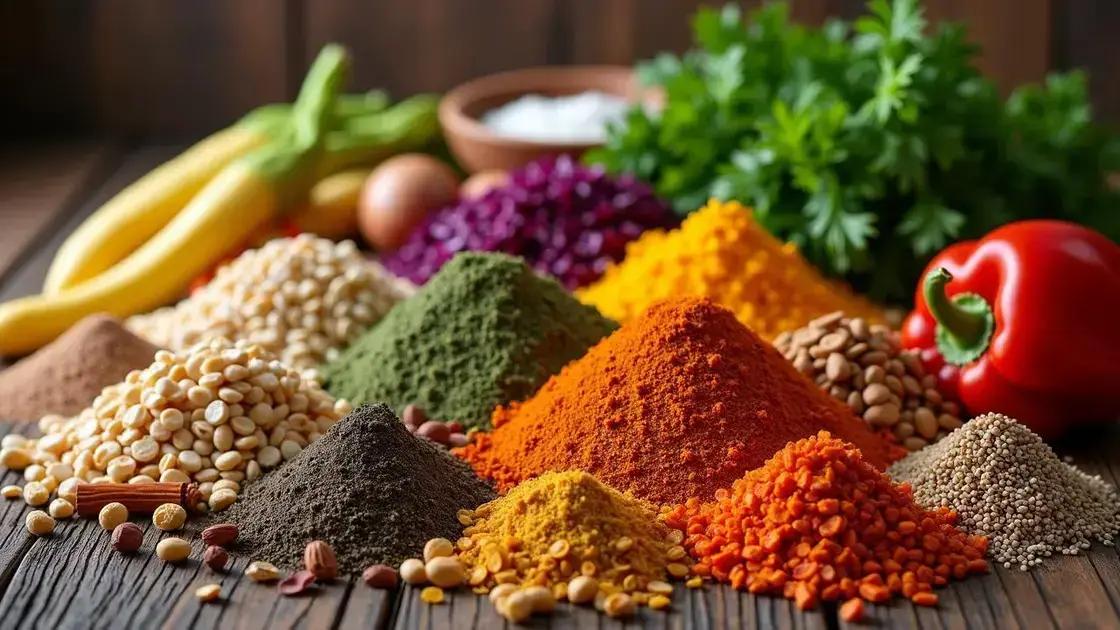African recipes can interact with medications, potentially affecting their efficacy. It is essential to consult healthcare professionals when incorporating traditional dishes into your diet to avoid adverse effects and ensure safe consumption.
Understanding the potential interactions between dietary choices and medications is crucial for maintaining health, particularly when exploring traditional foods like those found in African recipes. Many ingredients commonly used in African cuisine may possess unique properties that could affect how medications work in the body. In this article, we will delve into the ingredients of African recipes, how they may interact with pharmaceuticals, and the importance of consulting healthcare professionals before making significant dietary changes.
Understanding African Recipes and Their Ingredients

Understanding African recipes requires a deep dive into the rich tapestry of ingredients that are often used in these traditional dishes. Staple ingredients such as grains, vegetables, and meats play a central role in African cuisine. Some of the most common grains include millet, sorghum, and rice, which serve as the backbone of many meals.
Key Ingredients in African Recipes
Fruits and vegetables also have a significant presence. Ingredients like tubers (yams and cassava), leafy greens, and a variety of beans contribute both flavor and nutrition. Spices and herbs are vital as they add unique flavors. Ingredients such as ginger, garlic, and chili peppers are prevalent, enhancing the depth of the dishes.
The Role of Proteins
Proteins in African recipes might include fish, chicken, goat, or beef, each contributing its flavor and nutrients. For instance, dishes like Jollof rice combine rice with various proteins and spices, showcasing a vibrant array of flavors.
Furthermore, some specific African herbs, such as bitter leaf and baobab, are known for their health benefits. It’s essential to recognize how these ingredients can interact with medications. Some herbs might enhance the effects of certain medicines, whereas others could lead to adverse interactions.
Cultural Significance
African recipes are not just about food; they carry cultural traditions and meanings. Meals are often communal experiences, emphasizing sharing and togetherness. As such, understanding these recipes goes beyond their ingredients; it’s about the stories and practices that form an integral part of many cultures.
In summary, familiarizing oneself with the basic elements of African cuisine helps to appreciate its complexity and the potential health implications that may arise, especially regarding interactions with medications.
How Medications Interact with Foods

Medications can interact with foods in various ways, affecting how the body absorbs and processes both the food and the medication. Understanding these interactions is essential for anyone taking prescription or over-the-counter drugs. Certain foods can either increase or decrease the effectiveness of medications.
Common Food-Medication Interactions
One of the most well-known interactions is between grapefruit and numerous medications, particularly statins used for lowering cholesterol. Grapefruit can inhibit enzymes that help break down these drugs, leading to higher levels in the bloodstream and potential side effects.
Moreover, leafy greens, rich in vitamin K, can interfere with blood thinners like warfarin, potentially affecting blood clotting levels. Therefore, a consistent intake of vitamin K is crucial for those on such medication.
The Impact of Food Timing
The timing of food consumption can also be significant. Some medications are best taken on an empty stomach, while others are more effective when taken with food. For instance, certain antibiotics are best absorbed when taken without food, while some medications require food to improve absorption and reduce stomach irritation.
Importance of Hydration
Hydration plays a role in medication effectiveness as well. Drinking adequate amounts of water is essential to help transport medications through the body. Additionally, the consumption of alcohol can lead to dangerous reactions with various medications, worsening side effects or reducing effectiveness.
Understanding these food-medication interactions is crucial, especially for people who incorporate diverse diets, such as those who follow traditional African recipes. Ingredients in these recipes might affect the efficacy of medications, highlighting the need for awareness and caution.
Consulting Healthcare Professionals About Dietary Changes

Consulting healthcare professionals about dietary changes is vital for anyone considering new recipes or ingredients, especially those from traditional African cuisine. Dietitians and doctors can provide personalized advice based on individual health needs and existing medications.
Importance of Professional Guidance
When introducing new foods into your diet, certain ingredients may interact with medications, leading to health risks. Consulting a healthcare professional ensures that you understand potential interactions and make informed dietary choices. These professionals can assess your medical history and current medications to provide tailored guidance.
Questions to Ask Your Healthcare Provider
When meeting with a healthcare provider, it is essential to ask specific questions about how your dietary changes might impact your medications. Inquire about which foods you should avoid, the best times to consume certain ingredients, and how to safely integrate traditional dishes into your meals without compromising your health.
Regular Monitoring
After making dietary changes, it’s important to have regular follow-ups with your healthcare provider. This will enable them to monitor any changes in your health and make necessary adjustments to your medication regimen. Feedback about any new symptoms or side effects can help healthcare professionals provide better advice.
By working closely with healthcare professionals, individuals can safely enjoy the rich flavors of African recipes while ensuring their health remains a priority.
Understanding Dietary Interactions and Health
In conclusion, understanding how African recipes interact with medications is crucial for maintaining optimal health. The rich ingredients in traditional dishes can offer numerous health benefits, but they may also pose risks when combined with certain medications.
By learning about the ingredients, recognizing potential food-medication interactions, and seeking guidance from healthcare professionals, individuals can safely enjoy the unique flavors of African cuisine without compromising their well-being.
Monitoring and adjusting dietary choices in collaboration with health professionals ensures a holistic approach to health, allowing for the integration of cultural culinary practices into a safe and healthy lifestyle.
FAQ – Frequently Asked Questions about African Recipes and Medications
Do African recipes interact with medications?
Yes, certain ingredients in African recipes can affect how medications work, either enhancing or diminishing their effectiveness.
What should I consider when incorporating African cuisine into my diet?
It’s important to understand the ingredients used and consult healthcare professionals to identify any potential interactions with your medications.
Which foods should I avoid with specific medications?
Common foods to watch out for include grapefruit with statins and leafy greens with blood thinners, as they can affect medication efficacy.
How can I ensure dietary changes won’t impact my health?
Consult a healthcare provider for personalized advice on dietary changes, especially when introducing new or traditional foods.
Is regular monitoring necessary after dietary changes?
Yes, regular follow-ups with healthcare professionals are crucial to monitor health changes and adjust medications as needed.
What role do healthcare professionals play in dietary changes?
Healthcare professionals provide guidance on safe dietary practices, help identify possible food-medication interactions, and support your overall health journey.













